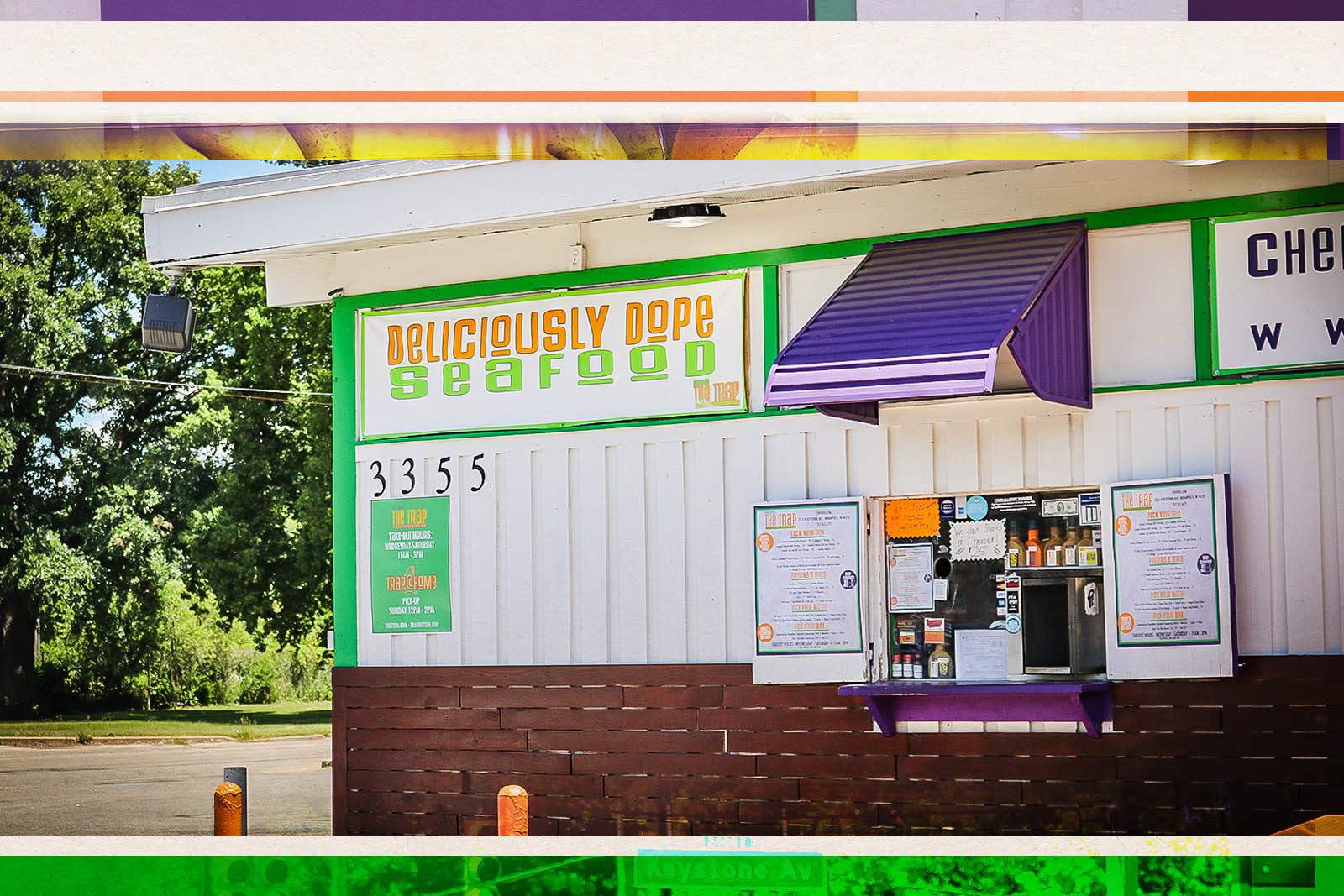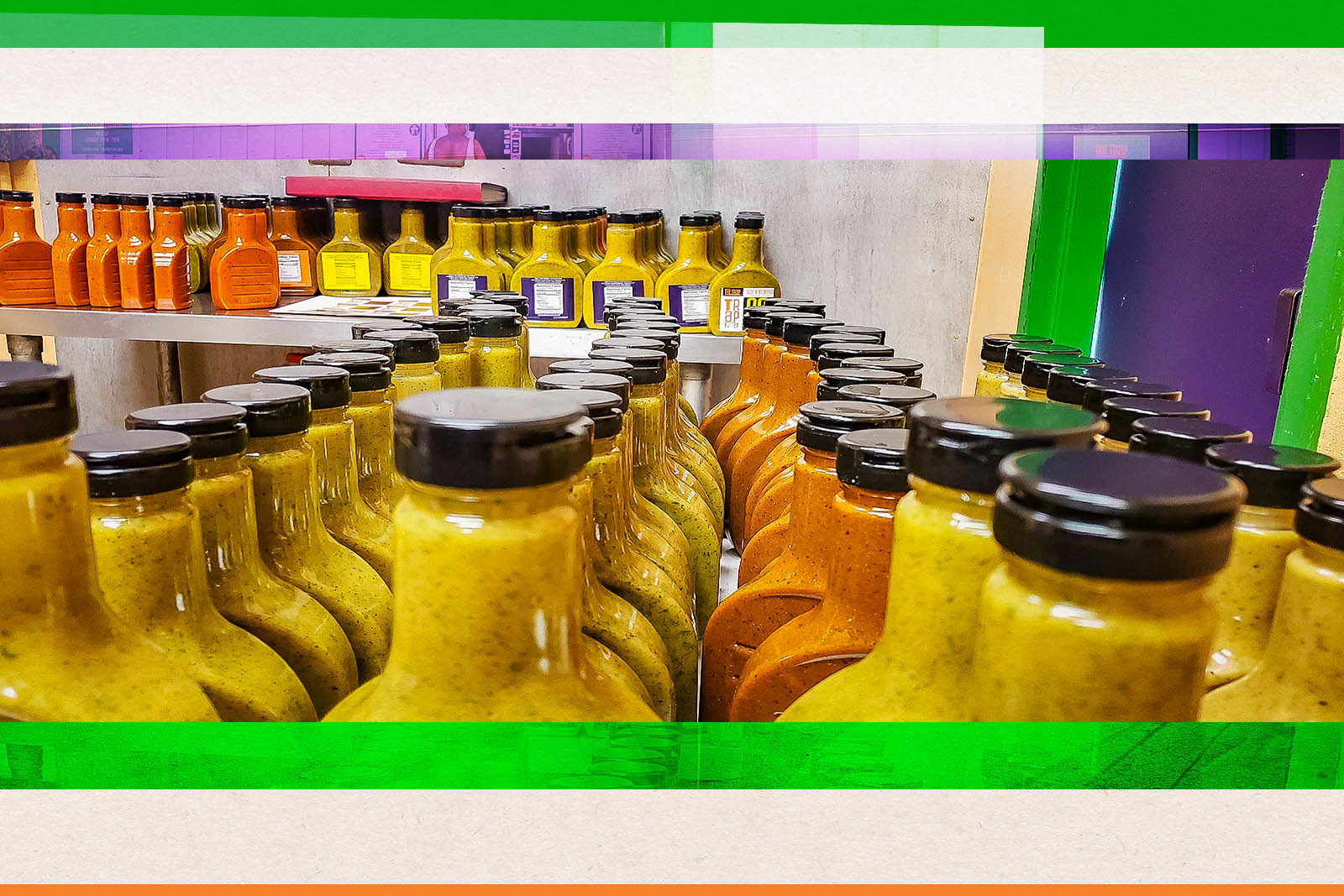“Mise en place.”
The French culinary phrase refers to having everything in its place. It also describes Chef Oya Woodruff’s approach to life. She has a plan for everything.
“I always knew I wanted to do something with food,” said Woodruff, owner of Chef Oya’s The TRAP, a popular seafood spot in Indianapolis. “I watched The Food Network like most children watched cartoons.”
Not surprising given her culinary heritage. Woodruff’s great-grandmother worked in the old L.S. Ayres Department Store Tea Room, where downtown shoppers dressed in hats and gloves would order the chicken velvet soup, an Indy favorite.
“My great-grandmother was the only black woman who was part of the National Culinary Federation at the time,” said Woodruff. “She was highly respected by her peers.”
As was the rest of the family.
“My great-aunt ran a baking business,” Woodruff added. “My aunts, uncles and father all enjoyed cooking. And I grew up in my godmother’s kitchen.”
In many ways, her family served as forerunners to the success Woodruff would achieve. But in early 2020, Woodruff’s seafood shop found itself in uncharted waters.
COVID-19 was nothing like anyone had seen before, including restaurant owners and their staffs.
Enter Local Initiatives Support Corporation (LISC) Indianapolis. And financial support from the Regions Foundation.
Woodruff was one of 25 small-business owners who recently received a $5,000 LISC Indianapolis grant. The funding, awarded to minority, immigrant and women-owned businesses, is part of a COVID-19 recovery program supported by the Indianapolis Foundation and the Regions Foundation, a nonprofit initiative of Regions Bank. The program will soon be awarding a second round of grants to 25 additional businesses.
“Restaurants like The TRAP are part of the fabric of a neighborhood,” said Erik Miner, Market Executive for Regions Bank in Indianapolis. “This is about far more than preparing meals. It’s about employing people, nourishing neighbors and having thriving businesses that are owned by the people of Indianapolis, for the people of Indianapolis.”
It’s also about helping neighbors in need. The TRAP – which stands for Towards Restoring food Access to the People – is in a food desert on Indy’s Near Northside. The United States Department of Agriculture estimates nearly 24 million Americans live in a food desert, requiring at least one-third of residents to travel more than a mile to reach a supermarket.
Woodruff is focused on ensuring neighbors needing a meal receive one through her Little Trapper Trays. She provides them through donations made by patrons.
“If there’s a knock on the door, we provide a meal to make sure no one goes hungry,” said Woodruff.
 Chef Oya Woodruff helps neighbors in need through her Little Trapper Trays. “If there’s a knock on the door, we provide a meal to make sure no one goes hungry.”
Chef Oya Woodruff helps neighbors in need through her Little Trapper Trays. “If there’s a knock on the door, we provide a meal to make sure no one goes hungry.”
The TRAP is a walk-up carry-out spot of just 250 square feet. How do Woodruff and team make such a small area work?
“We go up,” laughed Woodruff, sharing how they store equipment. “We make the most of the space we have.”
Mise en place.
The TRAP’s fare includes shrimp, crab legs, lobster and more, decadently basted in a butter – or “buttah” – sauce of your choice and a signature Bae seasoning, however mild or hot you want. And then there’s the chowder.
“Food is part of a celebratory culture,” said Woodruff. “If my food brings a taste of flavor people have never had before, I take pride in that. I take it seriously.”
The TRAP’s regulars take their meals seriously too.
“I’ve received marriage proposals and requests from children to be their mother because of my cooking,” Woodruff shared. “Being able to bring other people joy resonates with me. It makes me happy to make other people happy.”
If the lines at Chef Oya’s were any indication, Woodruff has succeeded. In fact, the number of visitors were enough of a worry that Woodruff decided to shut down walk-up service following the outbreak.
“We had concerns about long lines,” said Woodruff. “Our people join together to eat. I didn’t want to risk spreading the virus. And I wanted to keep my crew and myself as safe and healthy as possible.”
But not to worry. Woodruff already had a plan.
“TRAP at Home was an idea I had in my pocket last year,” said Woodruff. “We were able to take about 10 days off to spend with our families, and then we were off and rolling again. We said, ‘Ok, let’s go.’”
Woodruff researched vacuum sealing meals that could be sold to be enjoyed later.
“Label it. Sell it cold. Pack it up. Take it home,” she described.
The first batch of 120 meals sold out in just two hours. It’s the same amount of food The TRAP would sell on a normal lunch day.
Businesses like The TRAP have found ways to evolve right now that are really interesting.
Emily Scott, Program Officer with LISC Indianapolis
“Chef Oya has really pivoted her business during COVID-19 to provide vacuum-sealed meals and more take-and-cook meals,” said Emily Scott, Program Officer with LISC Indianapolis. “Businesses like The TRAP have found ways to evolve right now that are really interesting.”
And remember those TRAP buttah sauces? Woodruff and team continue selling them for people to enjoy at home.
Overall, orders have quadrupled in recent months.
“We had all these orders we had to fill,” said Woodruff. “We ended up working six days each week to fill the demand.”
 “Chef Oya has really pivoted her business during COVID-19,” said Emily Scott, Program Officer with LISC Indianapolis. Orders for Trap buttah sauces (pictured above) and take-and-cook meals have quadrupled in recent months.
“Chef Oya has really pivoted her business during COVID-19,” said Emily Scott, Program Officer with LISC Indianapolis. Orders for Trap buttah sauces (pictured above) and take-and-cook meals have quadrupled in recent months.
Woodruff is also grateful for the LISC funding. An unexpected challenge for the business ended up being an unexpected blessing as her restaurant not only stayed afloat, it’s grown in how it serves others.
“Ironically, and, I say this gratefully, the grant came at a time of growth for us,” said Woodruff. “I am so thankful for this funding. Support like this provides us with affirmation on a daily basis.”
The TRAP resumed its hot food service once stay-at-home orders were relaxed. How was opening back up?
“It was wonderful; it felt great,” said Woodruff. “Everyone lined up around the corner with their masks on.”
Mise en place – with everything and everyone right back where they should be.
About Regions Foundation
Regions Foundation supports community investments that positively impact the communities served by Regions Bank. The Foundation engages in a grantmaking program focused on priorities including economic and community development; education and workforce readiness; and financial wellness. The Foundation is a nonprofit 501(c)(3) corporation funded primarily through contributions from Regions Bank.
About Regions Financial Corporation
Regions Financial Corporation (NYSE:RF), with $133 billion in assets, is a member of the S&P 500 Index and is one of the nation’s largest full-service providers of consumer and commercial banking, wealth management, and mortgage products and services. Regions serves customers across the South, Midwest and Texas, and through its subsidiary, Regions Bank, operates approximately 1,400 banking offices and 2,000 ATMs. Regions Bank is an Equal Housing Lender and Member FDIC. Additional information about Regions and its full line of products and services can be found at www.regions.com.